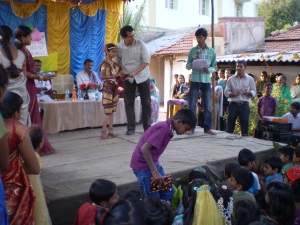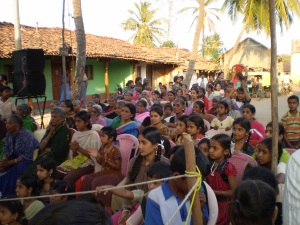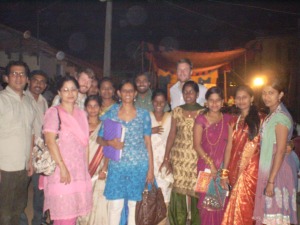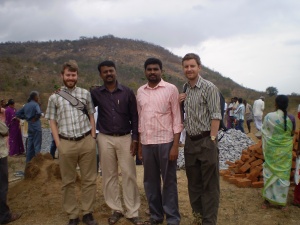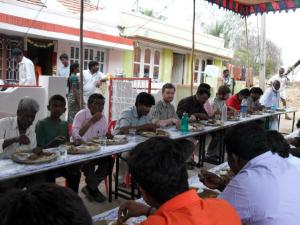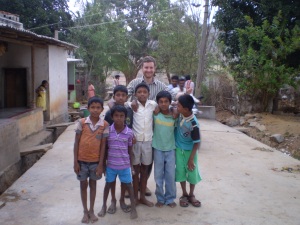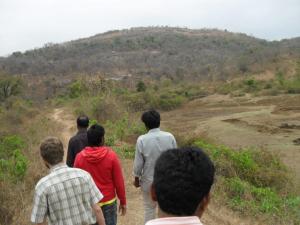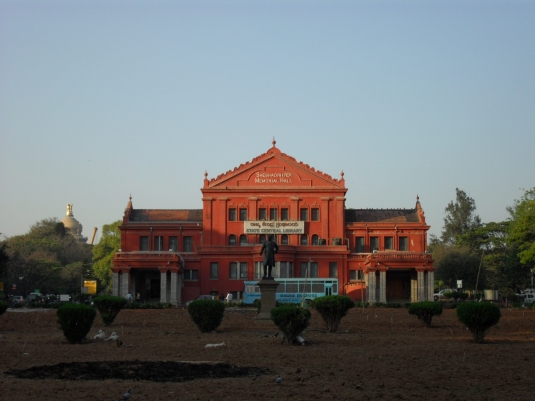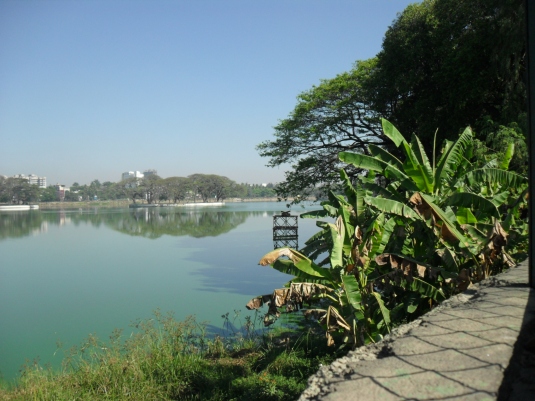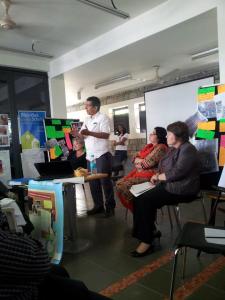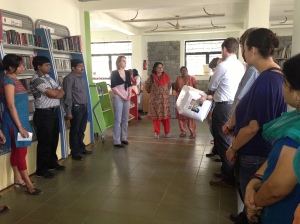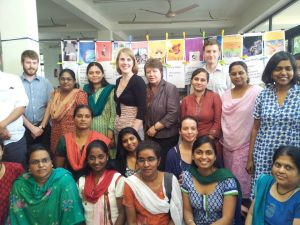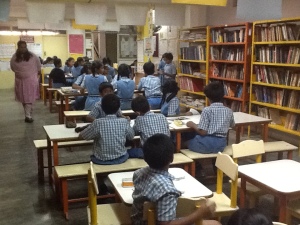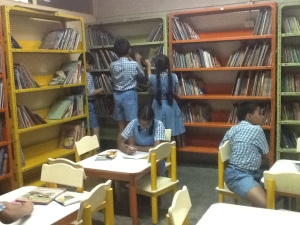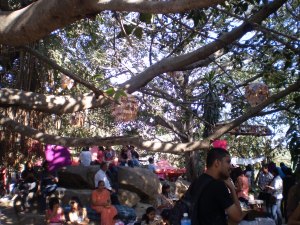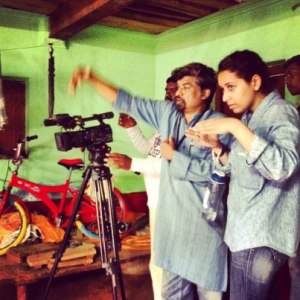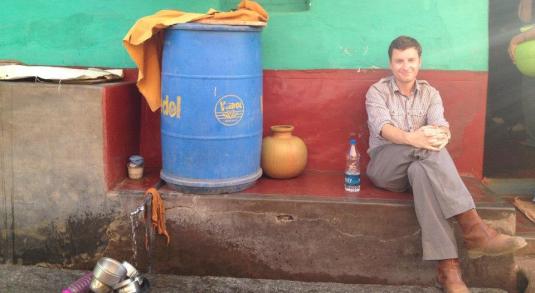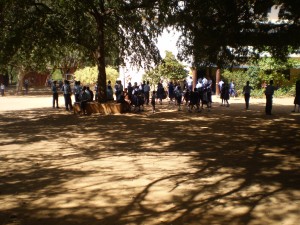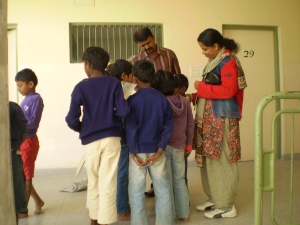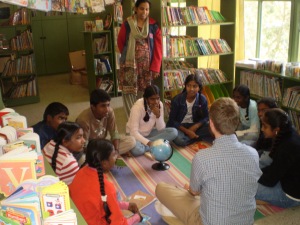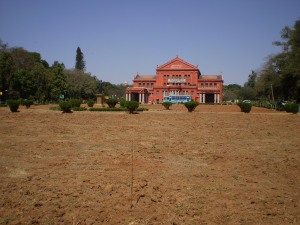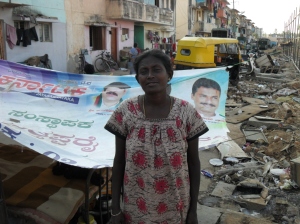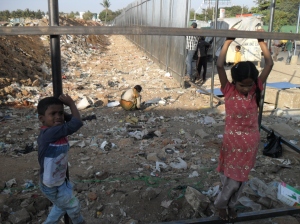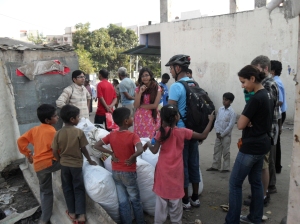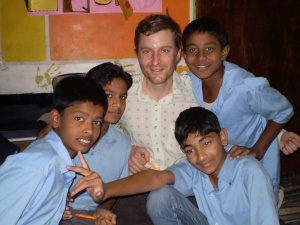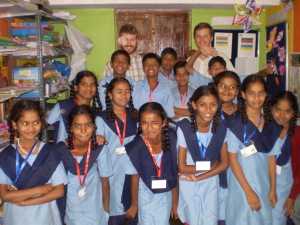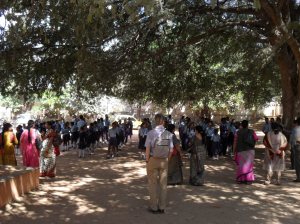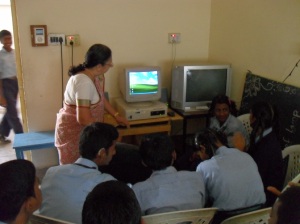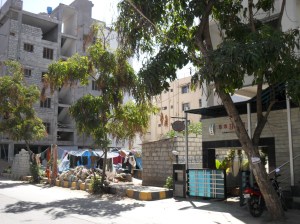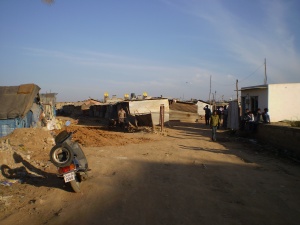We recently took a trip to the city of Davanagere to work on our survey project to assess the reading levels of Upper Kindergarten and grade school children. Davanagere is a place known for higher education, cotton and benne (butter) dosa. On the five and a half hour train ride there I devoured a book on Marx’s Capital written in an Indian context. It was certainly an experience reading about capitalism, imperialism, poverty and corruption in agriculture while passing through the fields of Karnataka. Thinking of political economy in the context of Marxian theory shed new light on Indian society and helped me answer the last remaining questions I had about inequality and distribution of wealth in India.
During our three days in Davanagere we were able to survey several schools. Unfortunately we were kindly turned away by many schools because March is the busiest month of the year for students and teachers because of preparations for upcoming exams. All of the school administrators were accommodating and encouraged us to complete the survey in June, which will be up to the people at Hippocampus to decide.
Davanagere is a very different place than Bangalore. Instead of the many stray dogs that live amongst the streets of Bangalore, Davanagere is full of wild pigs. Much like the dogs in Bangalore, the pigs of Davanagere are very intelligent and do not interfere with humans or get in the way of traffic. Wild pigs are more social than dogs and form family groups. At night they can often be found sleeping together in rows. I even saw some piglets that were smaller than my water bottle. India is the first place where I have seen animals like cows, dogs, goats, squirrels, birds and pigs grasp the concept of human automobile traffic, unlike pretty much every wild or domestic animal in North America or Europe. Yes, the pigs and dogs look both ways before crossing the street here.
The drivers of Danavagere are less likely to honk incessantly or drive through a crowd of people for no reason, which I greatly admired. Another oddity about Davanagere is the amount of people who are not accustomed to foreigners. Over the past three days in Davanagere I haven’t see a single other person of non-Indian descent. Groups of people would often stare and it was common to have groups of boys slow down or pretend to tie their shoelaces in close proximity to have a closer look at us. We were welcomed by a few restaurant owners and a few nice men our age asking where we were from, but overall we were viewed as an oddity in the town. I didn’t feel comfortable garnering so much attention, as I like to blend in. Walking around at night was much easier, being careful not to step on any sleeping pigs.
The food in Davanagere is great and mainly consists of tiny south Indian restaurants that more resemble stalls. Eating benne dosa and puri masala every day is a treat, but I am looking forward to simpler fare such as a big bowl of salad or plate or rice. I have greatly enjoyed southern Indian cuisine and hope to find a few places that serve it in Canada. Unfortunately north Indian cuisine is over-abundant in Canada, but south Indian cuisine has very little presence. I prefer south Indian over north Indian food by far. Out of all of the Asian cuisines that are popular in Canada such as Japanese, Korean, Chinese, north Indian and Thai, it’s odd that south Indian does not have a bigger footprint.
I also experienced my first time visiting a Hindu temple, which I greatly enjoyed. Jagadhish, the Hippocampus Davanagere manager, invited us to the temple to give a rupee offering, receive incense and holy water and walk around the sanctorum three times to achieve peace of mind. Ringing a bell to wake God up was also an option, but I passed on that. We also sat in on a kirtan where priests and temple goers sang religious songs.
It’s hard to believe that I only have two weeks left in India. There will be many things that I will miss such as the friendliness and hospitality of the locals, the countryside, and the great people I’ve met. No further comment on the traffic or lack of pedestrian rights.
More to come as we wrap up our time here.
Cheers,
Matt
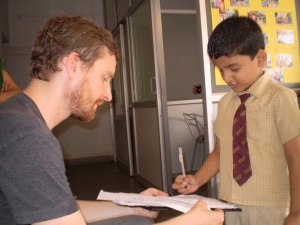
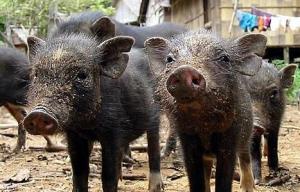

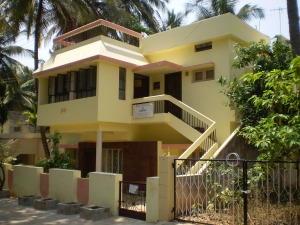
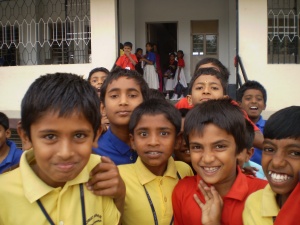
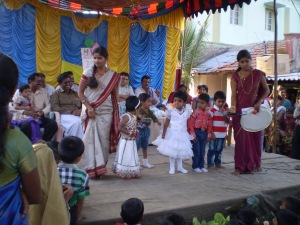 Last Saturday, we had the wonderful privilege to attend an Annual Day celebration at a small Hippocampus learning and kindergarten centre in rural India.
Last Saturday, we had the wonderful privilege to attend an Annual Day celebration at a small Hippocampus learning and kindergarten centre in rural India. 